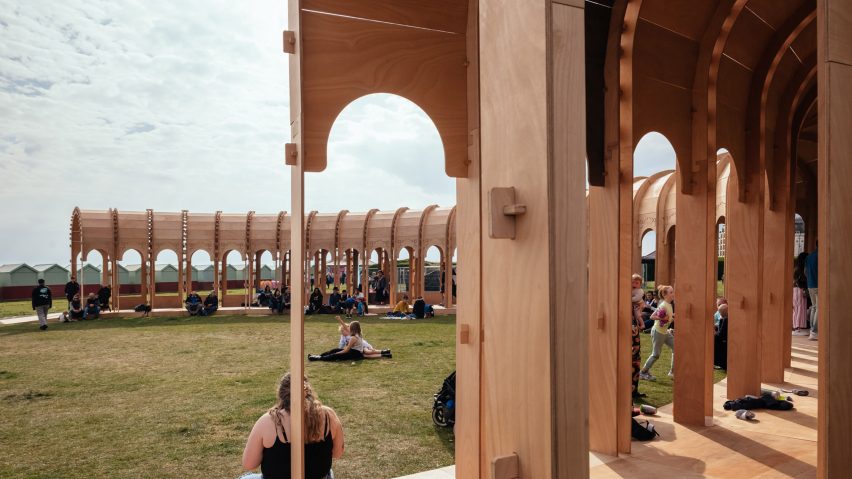
Pop-up plywood colonnade in Hove references Islamic architecture
Syrian architects Marwa Al-Sabouni and Ghassan Jansiz have created a pop-up, crescent-shaped colonnade on the seafront in Hove, England, assembled from CNC-cut plywood.
Called The Riwaq after the Arabic word for colonnade, the structure on Hove Lawns was commissioned as a semi-outdoor community space for the 2022 Brighton Festival, which ran from 7 to 29 May.
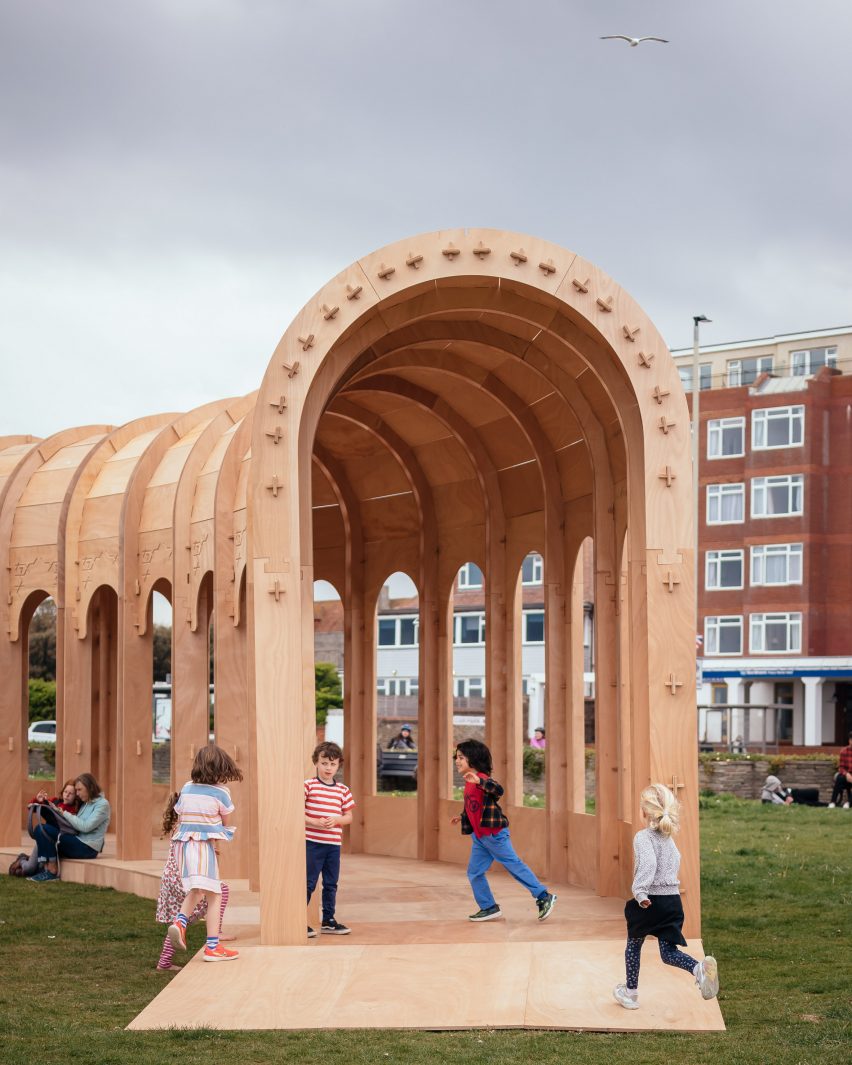
Oriented to face a stage, the colonnade served as both a sheltered spectator area and an events space in itself, hosting a programme including music concerts and dance performances.
"The Riwaq is often figuratively used in Arabic traditions as a referential space for culture and knowledge: the Riwaq of poetry, the Riwaq of culture, and so on," said architect Al-Sabouni, who was also a guest co-director for the festival.
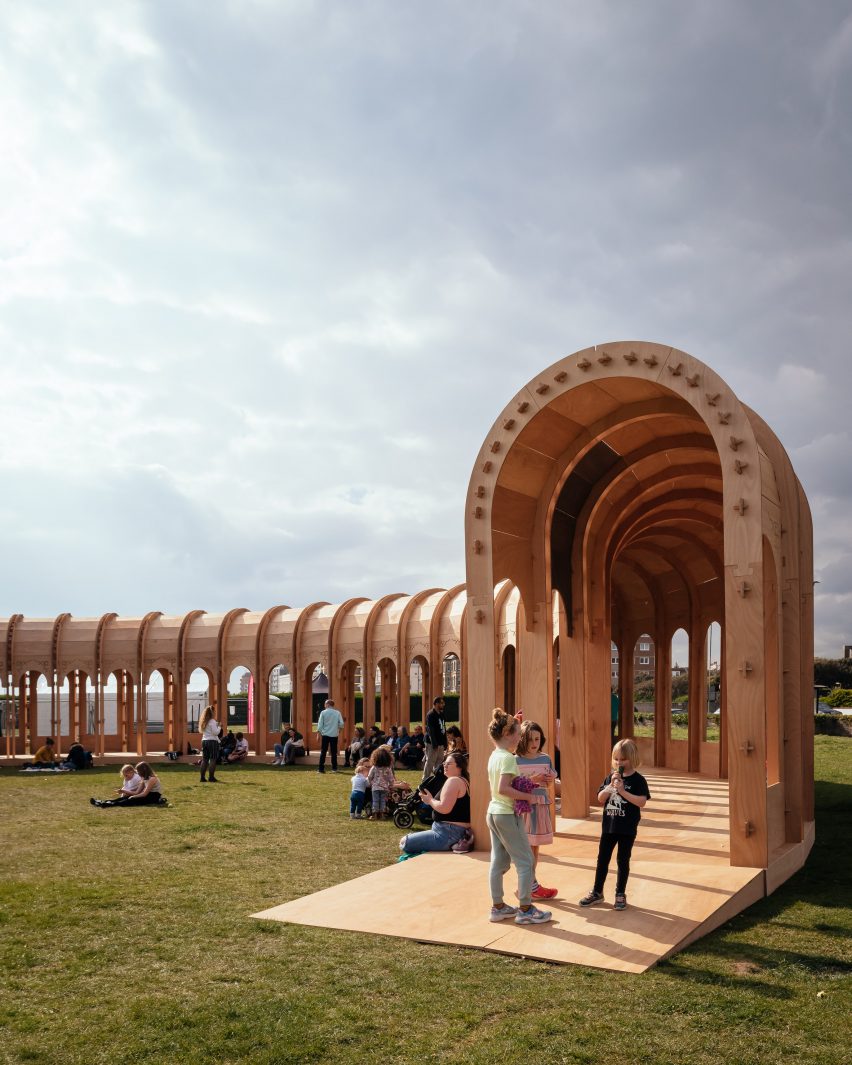
Along with fellow co-director Tristan Sharps, Al-Sabouni chose the theme of "Rebuilding" for the 2022 event that focused on bringing communities together.
Designed in collaboration with structural engineer Webb Yates alongside production company setWorks, The Riwaq was assembled like a 3D jigsaw from prefabricated CNC-cut plywood sections.
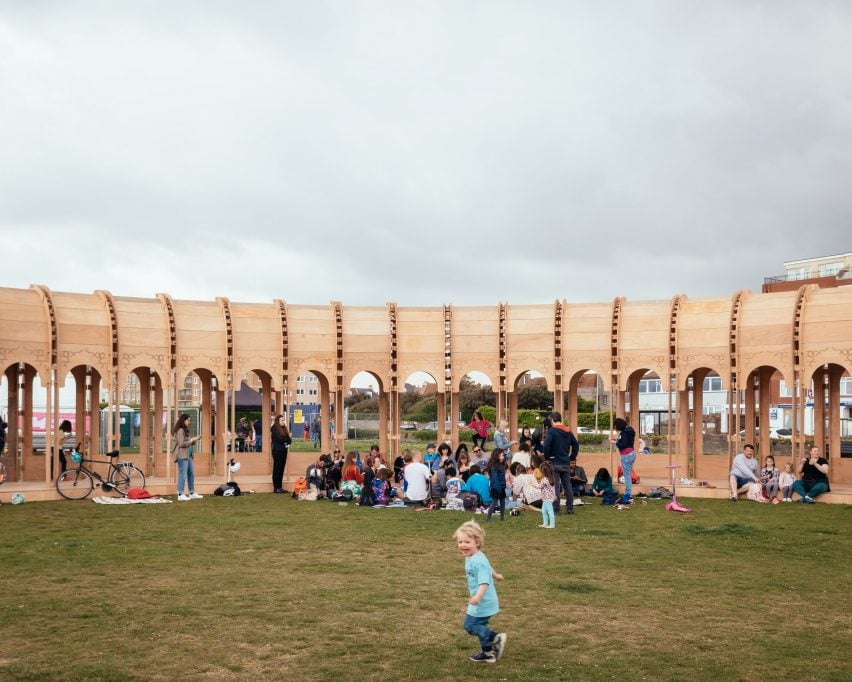
Each plywood section was combined on-site to create an arch and positioned atop a wooden base that forms the crescent shape.
The top of each arch is decorated with a small carving that was drawn from the design's development stages.
"There is a short story behind the carvings, as we were collaborating and exchanging technical drawings with Webb Yates, one of the explanatory drawings came back with these 'engravings' on," said Al-Sabouni.
"We thought it'd be interesting to give this local expression room, setting off from the understanding that Islamic Architecture has always adopted this approach of exchange."
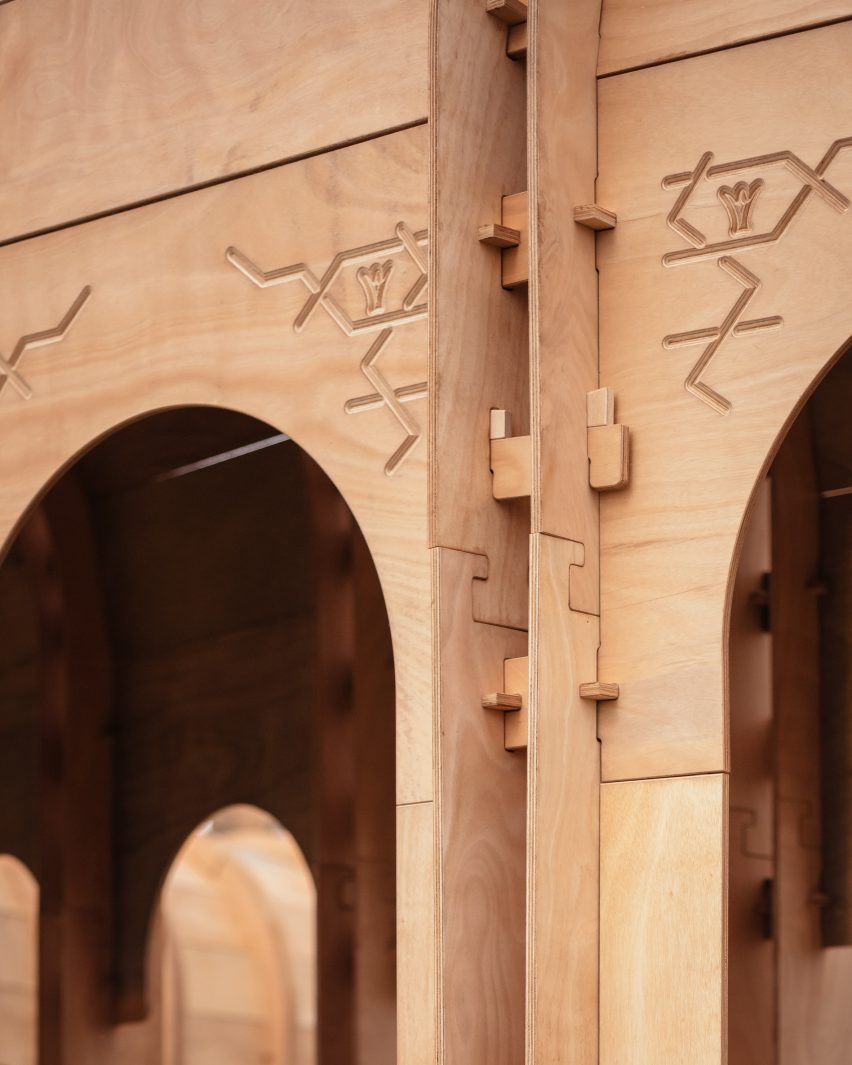
The Riwaq was originally planned to be disassembled and recycled at the end of the festival, but interest from the community may lead to it being repurposed elsewhere.
The project was realised with the support of property development company Moda Living and organisation Timber Development UK, with additional support from timber distributor DHH Timber and curator Vanessa Norwood.
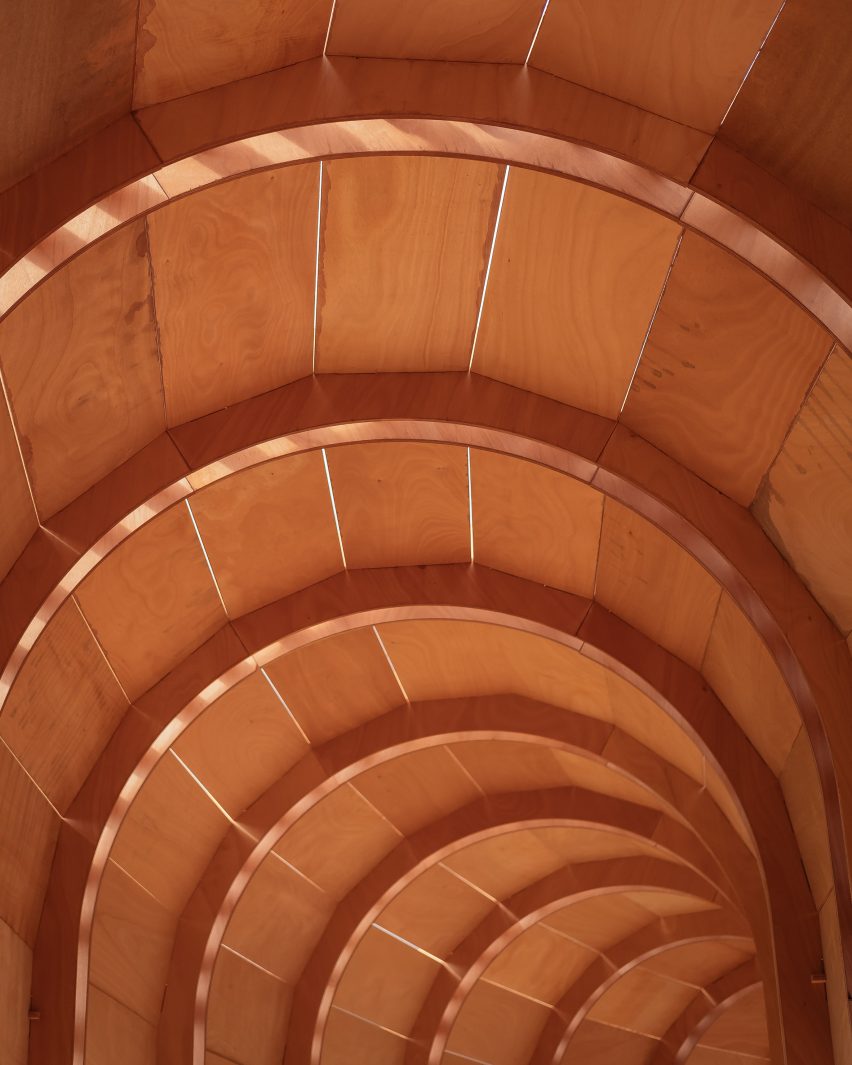
Architects Al-Sabouni and Jansiz are based in Homs, where they remained during the Syrian civil war. Much of their work is about rebuilding the half-destroyed city. Al-Sabouni is also the author of two books named The Battle for Home and Building For Hope.
Other temporary pavilions recently featured on Dezeen include designer Daniel Arsham's layered tunnel-like installation at this year's Milan design week, and American studio PARA Project's canal house "doppelgänger" in Bruges.
The photography is by Jim Stephenson.